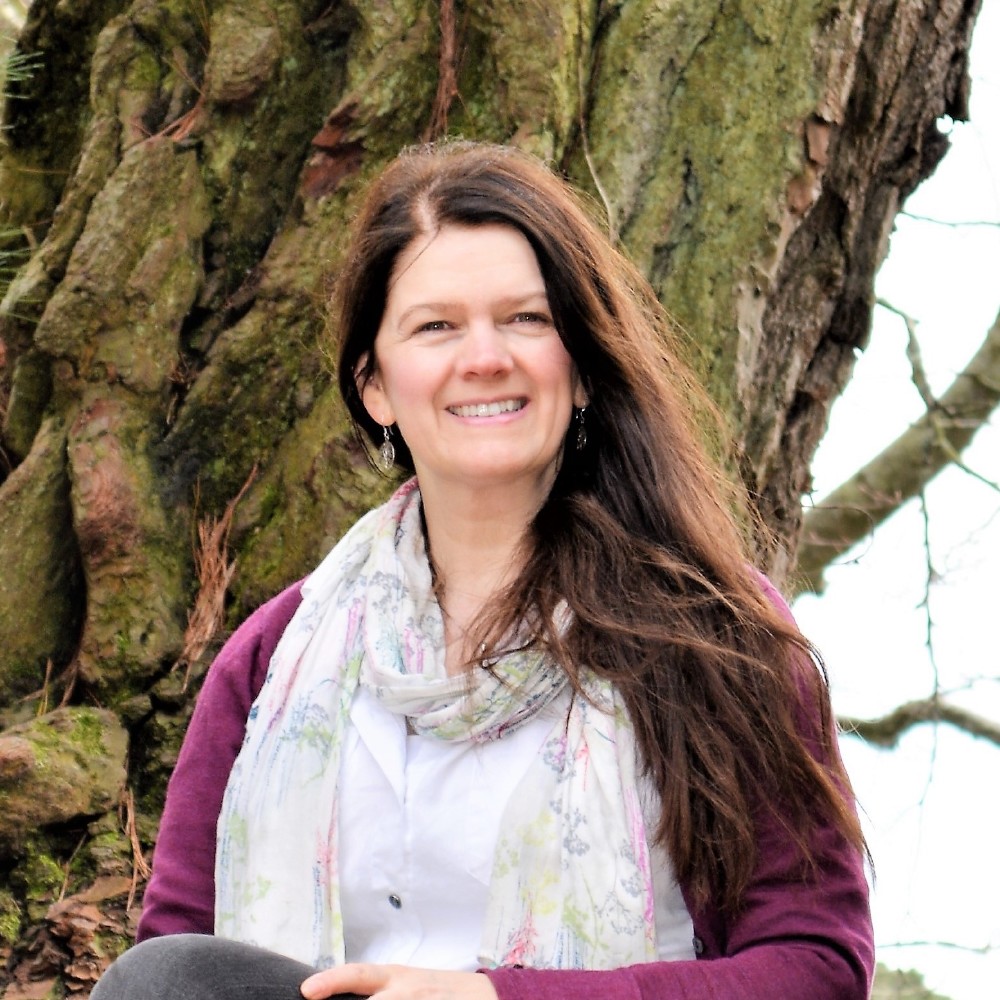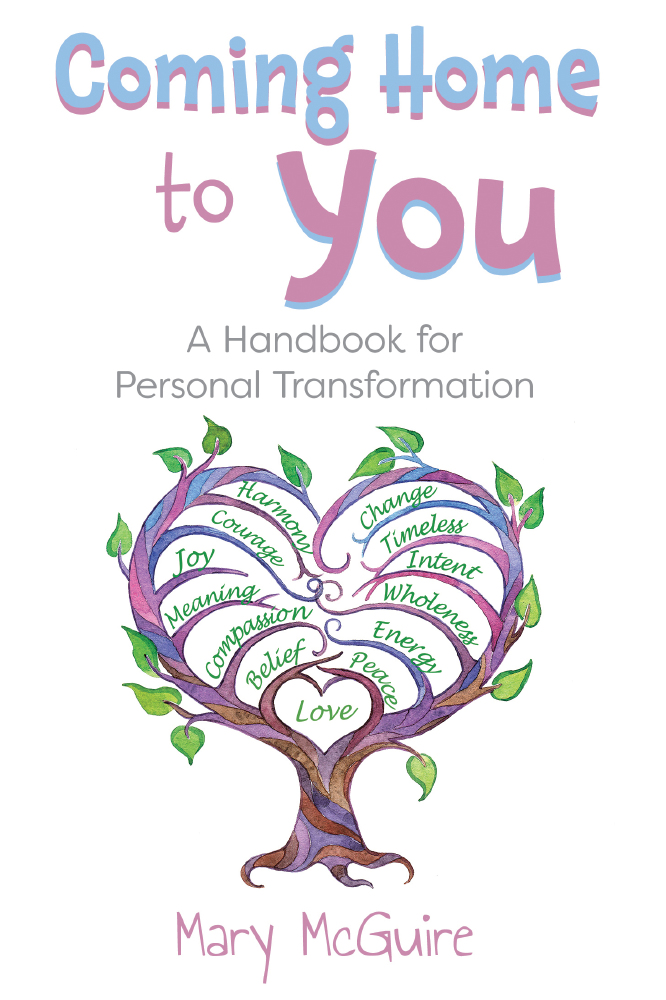Humans are the only mammals on the planet that have a negative image of their body. Nothing else quite demonstrates the madness of our human condition, quite as much as the way that we reject, abuse or ignore our bodily needs.

Mary McGuire
Think about it for a moment. An orangutan does not sit and brood at her companions and clan and feel disgruntled that her body is not as lithe or shapely as that of others around her. A leopard does not sit and mope that his spots are not quite as well spread out as other males in the group. In fact the idea is quite laughable. Yet, when we turn the lens our ourselves, we seem to find it perfectly acceptable to compare, contrast and condemn our own body, based on some external notion of what it should be.
If we become disconnected and start looking at our body in negative or fragmented ways, it leads to many difficulties. We start to see our body with a critical eye to its external appearance and how this compares unfavourably to other people. Women in particular are prone to this dissatisfaction with their body due to this external pressure to conform to unrealistic expectations. Bombarded as we are, by images of thin and under-developed models. When we start to over-identify with these images we become unhappy with ourselves and start to put our body through harsh regimes to try to achieve standards it was never designed to meet. The thoughts we send to our body are equally negative and punitive; ‘You're fat’, ‘You’re thin’, You're ugly’, ‘You’re too tall’, ‘You’re too short’ or perhaps the most defeating of all, ‘You're not good enough.' Since our thoughts create our reality, we are allowing ourselves in these moments to create a battlefield between us and our bodies.
When we separate our thoughts from our body, we stop listening to its needs. We start to develop body dysmorphia because we are literally unable to see our body the way it is. When someone has become extreme in their eating habits, through too much eating, or starving themselves, they have stopped connecting to their body. The mind and the body are working in two different spheres.
Making peace with our body starts with learning to connect and communicate with it. Our body is a very sophisticated biological organism and can communicate with us in many ways. Pain is a way of telling us something requires attention. Hunger is its way of asking for food. Repeat ailments are its way of drawing attention to an area which needs our help. Our body will prompt us when we need to move, or when we need to stop. It will guide us to specific foods we need when we are lacking something, or guide us away from foods, which are unhealthy. Despite this sophisticated communication system, over time, our mind has grown stronger and has learnt to ignore it. We can easily override these signals and frequently do but such denial comes at a cost to us and our health.
Health and harmony are achieved through balance in all areas of our life. A good place to start regaining a healthy relationship with our body is to look at our relationship with food. In our busy modern lives, we give little regard to what we are eating, why we are eating it and where the food has come from. Yet food is one of the most fundamental ways in which we connect with our body. It is part of the constant two-way communication between mind and body.
Animals in their natural habitat will be governed by the food which is available to them. They will eat what is in season, drink from watering places they know to be safe and learn to fast during harder times such as winter. Animals must work with their body. They have no other choice.
Humans are no different and when we stop stifling our body's communication, we can hear what it needs more clearly. Our body will tell us when it needs more protein, or more water or more fruit. If we are chasing the quick fix solutions of sugary and fatty snacks, this will be the ego mind, not the body. The ego mind is always thinking about past or future. It will be trying to move beyond the immediate need for food, pushing us on to the next big task. This is especially true at work, which is why stressful times can lead to weight gain. Learning to listen to our body when it is thirsty, hungry, full, or tired is like learning a new language. It can be difficult at first, but over time and with practice it becomes easier.
Over the years, I have sometimes been in tune with my body and listened to it and given it what it needs and at other times I have blocked its cries. When I have not listened to my body I have found myself feeling more lethargic, becoming overweight and lacking any passion or vibrancy not only for my food, but for life in general. When I became stressed at work, I resorted to poor food choices. I still have habitual triggers for carbohydrates, sugary treats or unhealthy choices, especially at times of stress, but these are crowded out by more days when food is cherished, celebrated and worked into healthy and nutritious meals.
I do not present myself as the ideal weight or shape, as defined by the external standards imposed on us, but neither do I suffer from the constant ailments and lethargy of the past. As I grow older, I see my body change shape and size, gaining extra bits, where there used to be none, but I notice this with a calm, loving acceptance. I know I will work with my body through these changes and find the best way to address its needs.
When you listen to your body, in the quiet of the morning, or during a stroll in the afternoon, or in the evening before you go to bed, it will give a much clearer message of what it wants and needs. You will start to appreciate the value of eating foods, which are at their peak season rather than those, which have been forced on. You will also see not every meal needs to be protein based and your body feels happier, calmer and more energetic without refined sugars or caffeine to prompt it into action beyond its normal limits.
Here are some ways that you can make peace with your body.
- Mirror work. Start your day by standing in front of a full-length mirror without any clothes on and look at your body. If this is something you find difficult to do, take a few deep breaths into your heart and repeat silently, I love myself and life loves me, until you are able to get passed any habitual self-loathing that you may hold. When ready, look at your body and thank it for everything it does. Start at the top of your body and work your way down thanking it for all of the gifts that it brings. Thank your eyes for giving you vision, your ears for hearing. Thank your mouth and throat for the power to speak your truth. Thank your heart for giving you life and love, and your arms for their strength. Thank your legs for giving you mobility, and your feet for taking you along your path. This should only take a few minutes, but making it a daily occurrence will help you to turn your negative body image into an appreciation of how unique you are.
- Eating Mindfully. If you are one of those people who is forever on the go and take your meals that way as well, or eat in front of the TV, try to allow some time for mindful eating. That means taking your food sat down at a table. Look at the food on your plate before you begin eating and thank it and the earth (or the animals) that have gone into making your meal. Think of the journey of the food from its source to your plate. When you are ready to start eating, take a few deep breaths and thank your body for taking as much nutrition from the delicious food in front of you as it can. When you start eating, do it slowly and savour every mouthful. Notice how the different flavours and textures feel in your mouth. Notice how you feel as you eat those foods and any pleasant memories that are triggered as you enjoy it. When you have finished, express gratitude for the wonderful meal you have enjoyed. Try to do this for at least one meal a day, more if you can. The more that you learn to eat mindfully the easier it gets and the better the food choices that you will make.
- Talk to your body. We can communicate with our body in the same way that we can communicate with anyone else. If you have a nagging pain or a recurring ailment, take some reflective time to ask your body what might be the underlying cause. This requires you to get into a meditative frame of mind, by sitting quietly for a few minutes and connecting with your breath as it moves in and out of your body. As you relax and your mind grows calm, start to ask the areas of you body that is in discomfort what it needs. Spend a few minutes raising the question and notice what messages, images or thoughts emerge in the space that follows. Write down your thoughts and follow the suggestions that emerge. We can find through quiet reflection that many of the body’s needs can be communicated to us.
Mary McGuire holds an MBA and MSc in Human Resources. Her early career as a social worker, led on to becoming a Chief Executive of a charity for people with Autism. For the last 20 years she has worked as an international business consultant, working with companies and leaders all over the world. More recently she has trained in energy and shamanic healing and her first book ‘Coming Home to You’ focuses on living in harmony with ourselves and our environment is available on www.findyourjoyfullife.com and on Amazon. Email [email protected]

Achievement: Coming Home to You by Mary McGuire is out now, available from Amazon, priced £12.95

